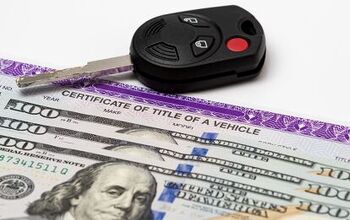Bailout Watch 575: White House Predicts $30b Loss On Auto Bailout
In a NY Times Op-Ed a few weeks back, I laid into the Obama administration for allowing GM to pretend that its $6.7b planned payback is even in the ballpark of what it owes the taxpayers. “If tens of billions in lost tax dollars is simply the inescapable price of preventing a systemic economic collapse, the White House should tell us so,” I wrote. Well, it appears that the White House agrees. Sort of. In an interview with the Detroit News, Gene Sperling, the senior counsel to Treasury Secretary Tim Geithner admitted
The real news is the projected loss [from the $82b+ auto sector bailout] came down to $30 billion from $44 billion
Well, halle-frickin-lujah. Now show us how we’re really going to get $50b out of GM and Chrysler.
Though Obama added a few rhetorical flourishes to highlight the “necessary sacrifices” angle to the auto bailout in a speech this week, the problem has never really been the governments. Don’t get it twisted, the White House’s admission was the right thing to do politically and morally, but the auto bailout is almost the least of its worries on the fiscal policy front. Indeed, the pure political implications of the bailout are likely to be minimal in comparison to the commercial implications. As I concluded in the NYT Op-Ed:
Afterward, while our government contemplates its runaway deficit and getting rid of its 8 percent of Chrysler’s equity, perhaps we’ll get an admission that General Motors still owes the American people. Without one, the relationship between the public and the automaker, and the Obama administration as well, may never be the same.
The relationship in real danger here isn’t the one between Obama and the American people. It’s the one between GM and Chrysler and the American people. Obama can always blame Bush or raise the “disorderly liquidation” counterfactual. For GM and Chrysler, outstanding debt is a lingering reminder of their unprecedented failure. In a brutally competitive industry, where firms will use a single MPG advantage to lay into rivals, a $30b outstanding welfare bill will follow the bailout babies like a dark cloud. Making good on every penny of their public support isn’t merely a question of political principle, it’s a matter of survival.
More by Edward Niedermeyer
Latest Car Reviews
Read moreLatest Product Reviews
Read moreRecent Comments
- Ajla But no ES500h at this time? 🤔 I'd be a little surprised if they bothered to make a trim with the 2.4T or any other ICE-only version. I'm thinking a 250hp AWD hybrid will be the "ES350h". Then whatever these "e" versions are and then maybe something with the Hybridmax.
- Jeff Not so much of a Malibu fan but this is a missed opportunity by GM to make the Malibu a hybrid only and sell it at a more competitive price. This would make a perfect fleet rental car with a hybrid and priced right it would be popular with many buyers who don't want a truck, suv, or crossover but want an American made car. The tooling and dies have long been paid off just offer the hybrid and make the interior a little nicer.
- SCE to AUX This makes the Pontiac Aztek look beautiful.
- Jeff If we are worried about the Chinese spying on us and gathering information then we need to make certain specifications on vehicles imported from China that would lessen any concerns about this. I don't see how we could eliminate all information gathering especially if that vehicle has connectivity to your phone.
- ToolGuy Oh look what's this?


































Comments
Join the conversation
TARP funds weren't created from pixie dust. We are all paying, and will continue to pay the price for a dollar that has less and less value. This is the kind of mentality that is in place at the Big Three unfortunately (especially GM apparently). At least Ford didn't go on the dole as did GM and Chrysler.
The sad part is that I coulda run GM or Chrysler down the tubes for 1/2 the salary . It would have been a decent gig whilst I was getting back on my feet from being laid off by the phone company. Wanna buy a bridge?